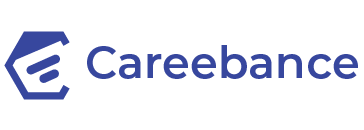Jamie McDonald’s LinkedIn post struck a chord that resonated throughout the professional community. After 592 days of relentless job searching, completing countless applications, and making it to the final rounds only to face rejection, she declared she was done. Her story isn’t just a personal account—it’s a mirror reflecting the deep-seated issues in today’s recruitment landscape.
The Human Cost of Broken Recruitment Systems
“Every single one of those days, including my birthday, holidays, etc. I have applied,” Jamie wrote. Let that sink in. While others were celebrating holidays with their families or marking personal milestones, she was diligently submitting applications, networking, and trying to secure her next role. The toll of such prolonged job searching extends far beyond professional frustration—it impacts mental health, financial stability, and personal relationships.
Jamie’s experience isn’t unique. She reached the third or fourth round with approximately seven companies, completed projects, participated in mock interviews, and even provided free work. This pattern of extensive candidate evaluation without meaningful outcomes highlights a concerning trend in modern recruitment practices.
The Numbers Tell a Story
Consider these statistics from Jamie’s journey:
- 1,097+ positions applied for on LinkedIn alone
- Approximately 300 additional applications on Wellfound & Otta
- Similar numbers on Indeed
- Multiple referrals and successful interviews
- Applications ranging from executive-level positions to retail roles
These numbers reveal more than one person’s determination—they expose systematic inefficiencies in how organizations approach talent acquisition. When qualified candidates like Jamie, with proven experience in Customer Success, Product, and Tech, struggle to secure positions despite such extensive efforts, it signals a fundamental disconnect in the hiring process.
Breaking Down the Barriers
The Over-Qualification Paradox
One particularly troubling aspect of Jamie’s story is her experience with entry-level positions. “Yes, I applied at Walmart, McDonald’s, and other positions way below my pay grade and expertise, and I’m overqualified and denied,” she shared. This highlights a critical issue in current hiring practices—the assumption that overqualified candidates will quickly leave for better opportunities, leading to automatic rejections without considering individual circumstances or motivations.
The Project Burden
Jamie’s mention of completing projects and providing free work points to another concerning trend: the increasing demand for unpaid labor during the interview process. While assessment of skills is necessary, the line between evaluation and exploitation has become increasingly blurred.
Systemic Issues Requiring Systematic Solutions
The challenges Jamie faced aren’t just personal hurdles—they represent systemic issues that require comprehensive solutions. Here’s where Careebance’s integrated approach to recruitment comes into play.
Revolutionizing Candidate Experience
Modern HRIS solutions like Careebance address these challenges through:
- Intelligent Application Processing Instead of forcing candidates to submit hundreds of applications into what feels like a void, Careebance’s system provides:
- Real-time application status updates
- Meaningful feedback at each stage
- Clear communication channels between candidates and recruiters
- Skills-Based Matching Rather than relying solely on traditional metrics that can lead to over-qualification rejections, Careebance implements:
- Advanced skills mapping
- Project-based assessment platforms
- Comprehensive candidate profiling that looks beyond surface-level qualifications
- Interview Process Optimization To prevent the endless cycle of interviews and unpaid work, Careebance offers:
- Structured interview frameworks
- Standardized evaluation criteria
- Fair compensation guidelines for assessment projects
The Business Impact of Broken Systems
Organizations need to recognize that stories like Jamie’s don’t just represent individual struggles—they indicate significant business inefficiencies:
Cost of Lost Talent
When qualified candidates like Jamie withdraw from the job market due to systemic frustrations, organizations lose:
- Valuable expertise and experience
- Diverse perspectives
- Potential innovation drivers
Reputation Damage
In an age of social transparency, companies can’t afford to ignore the impact of poor hiring practices:
- Jamie’s post garnered significant engagement
- Similar stories are shared daily across professional networks
- Negative candidate experiences influence brand perception
Operational Inefficiency
The resources invested in prolonged hiring processes often exceed the cost of implementing better systems:
- Multiple interview rounds with no outcome
- Redundant assessment processes
- Lost productivity due to unfilled positions
Creating Meaningful Change
Careebance’s approach to solving these systemic issues focuses on three key areas:
1. Transparency in Process
Organizations using Careebance’s platform provide:
- Clear timelines for each stage of the hiring process
- Specific feedback mechanisms
- Defined expectations for candidate assessments
2. Efficiency in Evaluation
Our system implements:
- AI-powered initial screening that goes beyond keyword matching
- Structured assessment frameworks
- Automated feedback loops
3. Human-Centric Design
Most importantly, Careebance maintains the human element in recruitment through:
- Personalized communication channels
- Regular status updates
- Clear, respectful feedback mechanisms
Industry-Wide Impact
The implications of stories like Jamie’s extend beyond individual companies to impact entire industries:
Talent Pool Erosion
When experienced professionals like Jamie exit the job market, industries lose:
- Valuable skill sets
- Years of accumulated knowledge
- Potential mentors for junior staff
Innovation Stagnation
The current system’s inefficiencies affect organizational growth by:
- Limiting diverse perspective integration
- Slowing down team building
- Reducing creative problem-solving capacity
Moving Forward: A Call for Change
Jamie’s decision to quit the traditional job search represents more than personal frustration—it’s a call to action for the industry. Organizations must recognize that maintaining outdated hiring practices isn’t just inconvenient for candidates—it’s actively harmful to business success.
Immediate Actions Organizations Can Take
- Audit Current Processes
- Evaluate time-to-hire metrics
- Review candidate feedback
- Assess interview-to-hire ratios
- Implement Modern Solutions
- Adopt comprehensive HRIS platforms
- Integrate AI-powered screening tools
- Establish clear communication protocols
- Prioritize Candidate Experience
- Provide regular updates
- Offer constructive feedback
- Respect the candidate’s time and effort
The Role of Technology in Human-Centered Hiring
While Jamie’s story highlights the human cost of broken systems, it also points to the crucial role technology can play in creating more equitable hiring processes. Careebance’s platform bridges the gap between efficiency and humanity by:
Streamlining Communication
- Automated updates that don’t feel automated
- Clear channels for two-way dialogue
- Transparent process tracking
Optimizing Assessment
- Fair evaluation frameworks
- Structured feedback mechanisms
- Efficient project assessment tools
Supporting Decision-Making
- Data-driven insights
- Bias reduction tools
- Comprehensive candidate profiles
A Time for Change
Jamie’s 592-day journey serves as both a warning and an opportunity. While her decision to step away from traditional job searching represents a personal choice, it should be a wake-up call for organizations to reassess their hiring practices.
The solution isn’t just about implementing new technology—it’s about fundamentally rethinking how we approach talent acquisition. Careebance’s platform represents more than just an HRIS solution; it’s a commitment to creating fairer, more efficient, and more human-centered hiring processes.
For organizations ready to prevent stories like Jamie’s from becoming commonplace, the time for change is now. Visit www.careebance.com to learn how our comprehensive recruitment solutions can transform your hiring process into one that serves both organizations and candidates effectively.
As a leading provider of innovative HRIS solutions, Careebance is committed to supporting organizations in their journey toward ethical hiring practices. Our comprehensive platform combines cutting-edge technology with deep industry expertise to help organizations build diverse, talented teams while maintaining full compliance with legal requirements. Contact our team of experts today to learn more about how Careebance can support your organization's ethical hiring initiatives.







